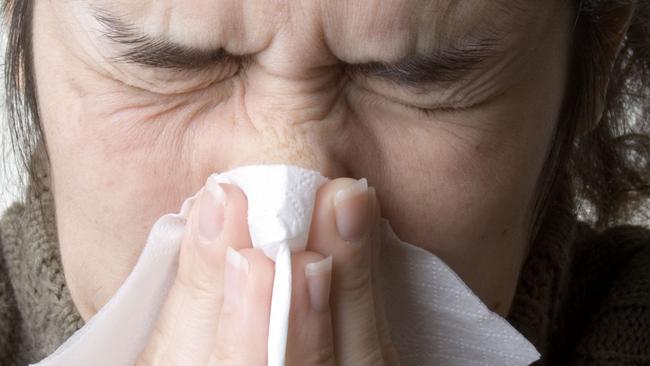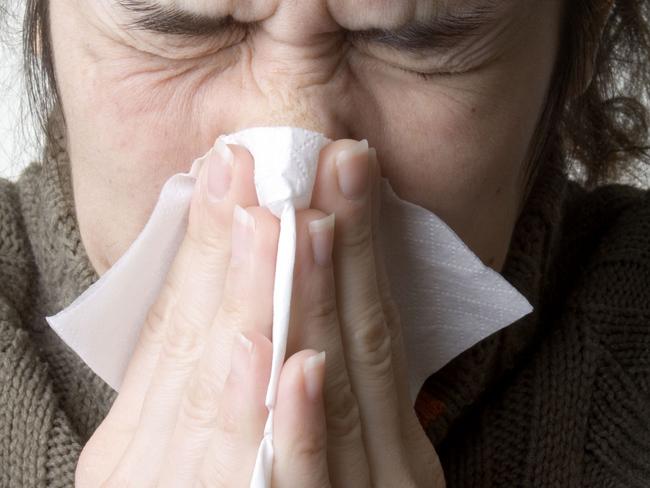How to call in sick with conviction
ADMIT it, you’re thinking about chucking a sickie today aren’t you? Here’s how you can do it convincingly, and you wouldn’t even be lying.

IT’S still early in the week and Saturday is so far away so we won’t blame you if you’re tempted to call in sick.
If you use these fancy medical terms for commonplace problems, you may not be learning what the teacher intended, but at least you’ll be enhancing your vocabulary. And it’ll make your not-so-valid excuse sound very worthy of a sickie.
LIMB FALLING ASLEEP
That numb feeling that you wake to when you’ve slept on your arm wrong is obdormition. It is followed by a pricking, tingling sensation called paraesthesia.
ICE CREAM HEADACHE
Sphenopalatine ganglioneuralgia. Say it five times fast to warm up your mouth and relieve the brain freeze.

MUSCLE TWITCH
If you ever feel the sudden flutter under your skin from a small bundle of muscle fibres spontaneously contracting, you can say you’re experiencing fasciculation (from fasciculus, “little bundle”).
CORN
That callus on your foot may be soft, in which case it’s a heloma molle. If it’s hard, it’s a helomadurum.
TONGUE BUMP
One tiny, swollen tastebud looks like no big deal in the mirror, but feels distractingly humungous in your mouth. It has a big name to match that big feeling: transient lingual papillitis.
INGROWN TOENAIL
If you want to go Greek, it’s onychocryptosis (“hidden nail”), but if you prefer Latin, stick withunguis incarnatus (“nail in flesh”).
MOUTH ULCERS
Aphthous stomatitis. Hard to say even without ulcers.
CHEEK BITING
You know how sometimes you bite the inside of your cheek by accident, and then you get that little ridge of tissue that sticks out so that you end up biting it again and again? That’s morsicatiobuccarum, baby.
GETTING THE WIND KNOCKED OUT OF YOU
This feels bad, but doesn’t last very long. Just a transient diaphragmatic spasm.
HICCUP
The more rhythmic diaphragm action of the hiccup is a synchronous diaphragmatic flutter.
SNEEZE
Why sneeze when you can sternutate?

EYE FLOATERS
What are those little transparent threads you can see floating across your eyeball when you pay close attention? Just muscae volitantes (“flying flies”) the name for the little bits of protein or other material in the jelly inside your eye.
BED WETTING
If you wet the bed at night it’s nocturnal enuresis. If you have accidents during the day it’s diurnal enuresis.
FAINTING
If you faint at the sight of blood or upon hearing some shocking news, it’s probably vasovagal syncope, an automatic response mediated by the vagus nerve. Tightly laced corsets only make it worse.
DIZZY FROM STANDING UP FAST
If a dizzy, head rush feeling is brought on by standing up too fast, it’s orthostatic hypotension.
GROWLING STOMACH
All that rumbling and gurgling in the stomach and guts goes by the name borborygmi.
GOOSE BUMPS
The Latin horrere originally referred to bristling, or hair standing on end, a sense captured by the word for goose bumps, horripilation.
NOSE RUNNING FROM EATING SPICY FOOD

When you’re sniffling while you’re spooning in that spicy soup, you’ve got gustatory rhinitis.
JOINTS MAKING NOISE
All that popping, creaking, and cracking of joints when you get out of bed in the morning goes by the name of crepitus, from the Latin for “rattle, crack.” The word decrepit goes back to the same root.
SHIN SPLINTS
People aren’t very impressed by shin splints, but they might be impressed by medial tibial stress syndrome.
HANGOVER
Overdid it last night? Just explain to your boss that you’ve got a bit of veisalgia. This fancy word for hangover was coined in a 2000 paper in a medical journal. It combines the Norwegian word kveis (”uneasiness following debauchery”) with the Greek word for pain.
A version of this article appeared on The Week.
This article was written by Arika Okrent from Slate and was legally licensed through the NewsCred publisher network.



